SAVE THE CHILDREN WORKS WITH PSYCHIATRISTS TO PROVIDE PSYCHOSOCIAL SUPPORT FOR SEA MIGRANT CHILDREN

By Songporn Bea Leelakitichok
The two brothers, Abu* and Bassam,* ages three and two years old, respectively, have been under the care of the Phang Nga shelter in Thailand for about six months. Their father works in Malaysia and would send money back home to Myanmar. But their mother wanted them to be reunited as a family again, so she took them with her and left Myanmar to go to meet her husband in Malaysia.
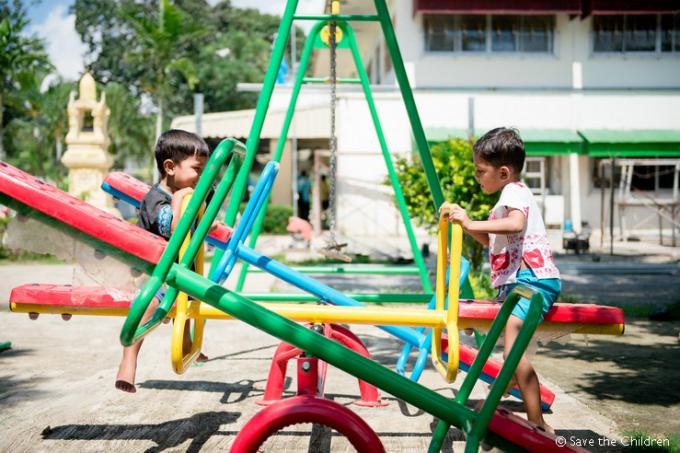
Unfortunately, they did not get to reunite. They were all caught by Thai authorities in Songkhla province and referred to Phang Nga shelter. It got even worse for the two brothers when, a month ago, Abu and Bassam’s mother and aunt tried to escape from the shelter. The women got caught and were sent to the Immigration Detention Centre (IDC) in Phang Nga where illegal migrants are held. Since then, because migrants who try to escape from these shelters will not be allowed to go back to the same shelter again, the boys have been separated from their mother.
During the first week of the separation, both children were very sad. They woke up at night and cried a lot because they were very attached to their mother. Abu shyly told the staff “I love my mom and my little brother very much.”
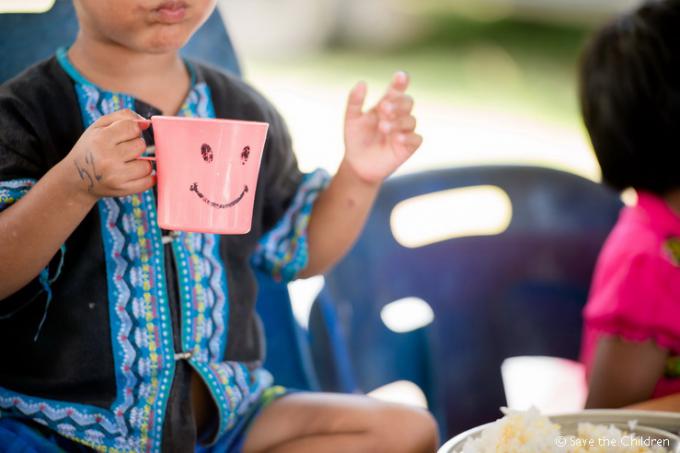
At the beginning, both Abu and Bassam, along with other children had skin diseases: rash and scabies. However, their conditions got better after receiving healthcare at the shelter and learning with Save the Children how to take care of themselves. To help these children, Save the Children conducts activities such as constructing paper dolls with them to reflect about their bodies and allow them to tell stories in their own words and body-mapping to teach them about hygiene.
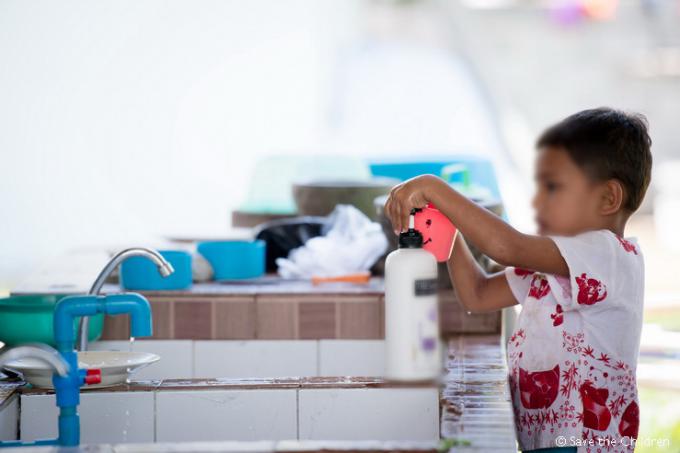
“We are happy living here because we can play. We have fun with the activities and get to learn,” said Abu. “But we miss our parents,” added Bassam.
Save the Children is working closely with the shelter staff to provide better psychosocial support to the two brothers as well as other children. Shelter staff who attended Save the Children’s Psychological First Aid Training are applying the knowledge to better support children in shelter. Now they can identify and understand signs of depression and behaviours showing that children are in distress.
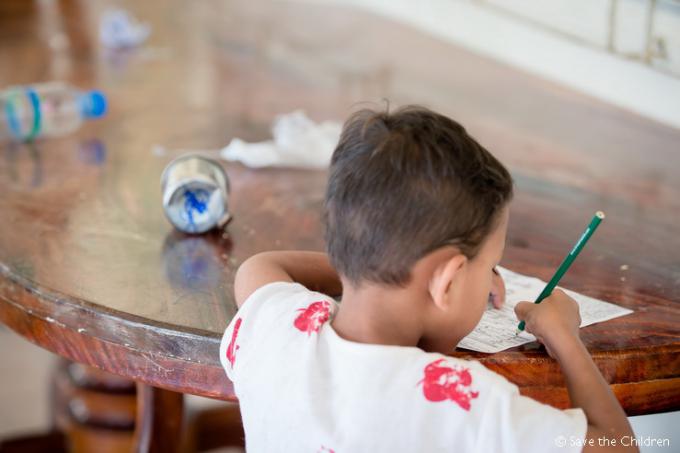
It is not an easy process for such small children to understand and manage their own feelings towards the separation and traumas. That is why Save the Children is planning to work with a team of local psychiatrists to provide psychosocial support and individual counseling for needy children as well as mothers. Not only will the beneficiaries receive the support from the psychiatrist team, but also the shelter staff who have been overwhelmed from caring for a population triple the size they used to do.
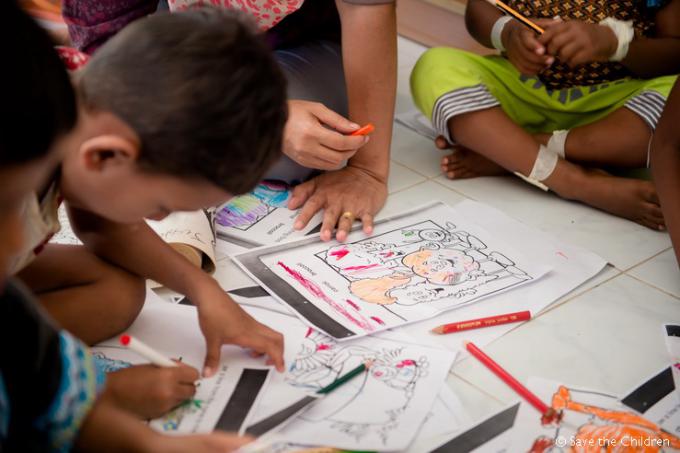
Save the Children sees the importance of family reunification and building relationships between children and their families. For now, we are working with shelter staff to allow Abu and Bassam to visit their mother at the Phang Nga Immigration Detention Center; and we hope to be able to do more in the future.
(* indicates that the name has been changed to protect identity)



